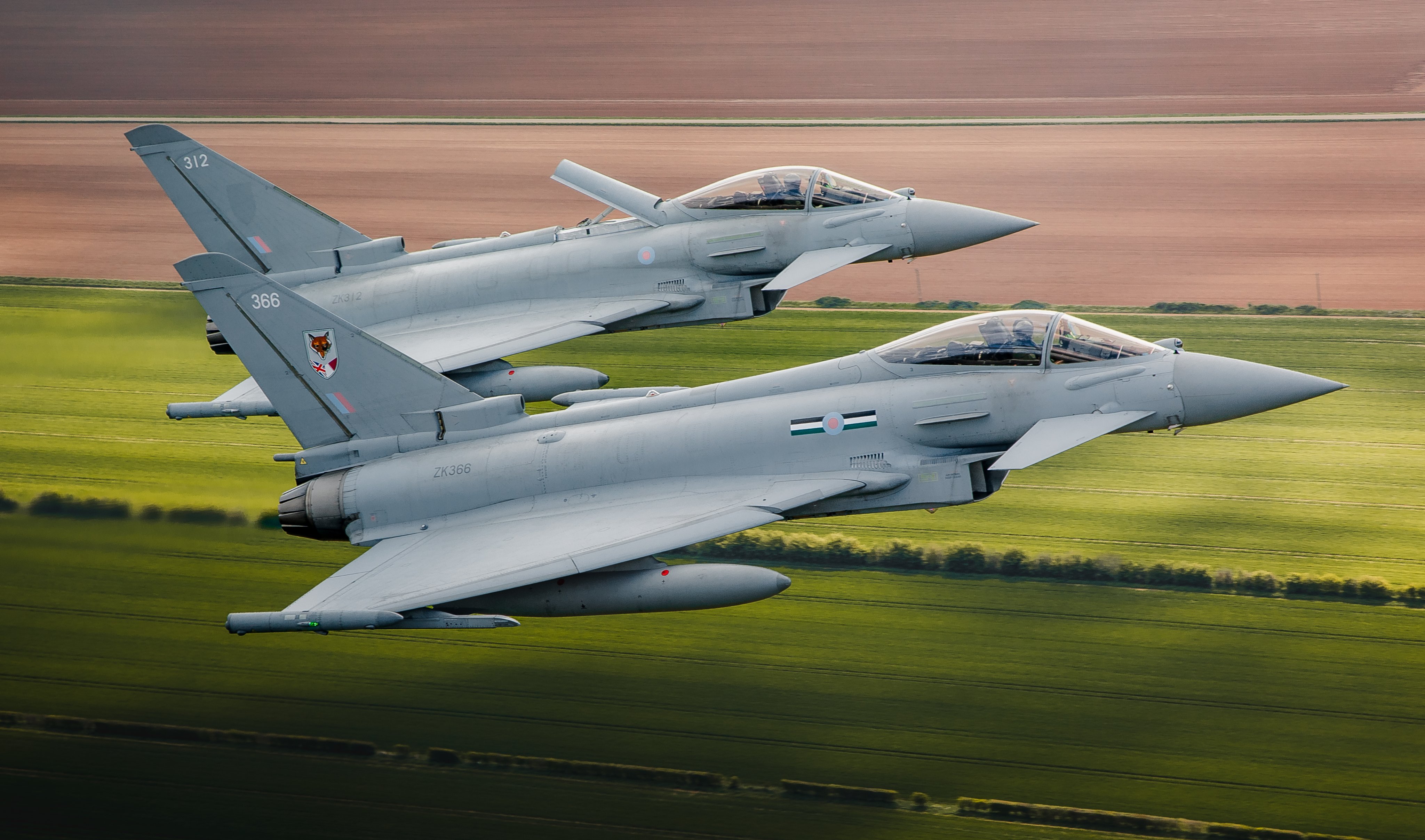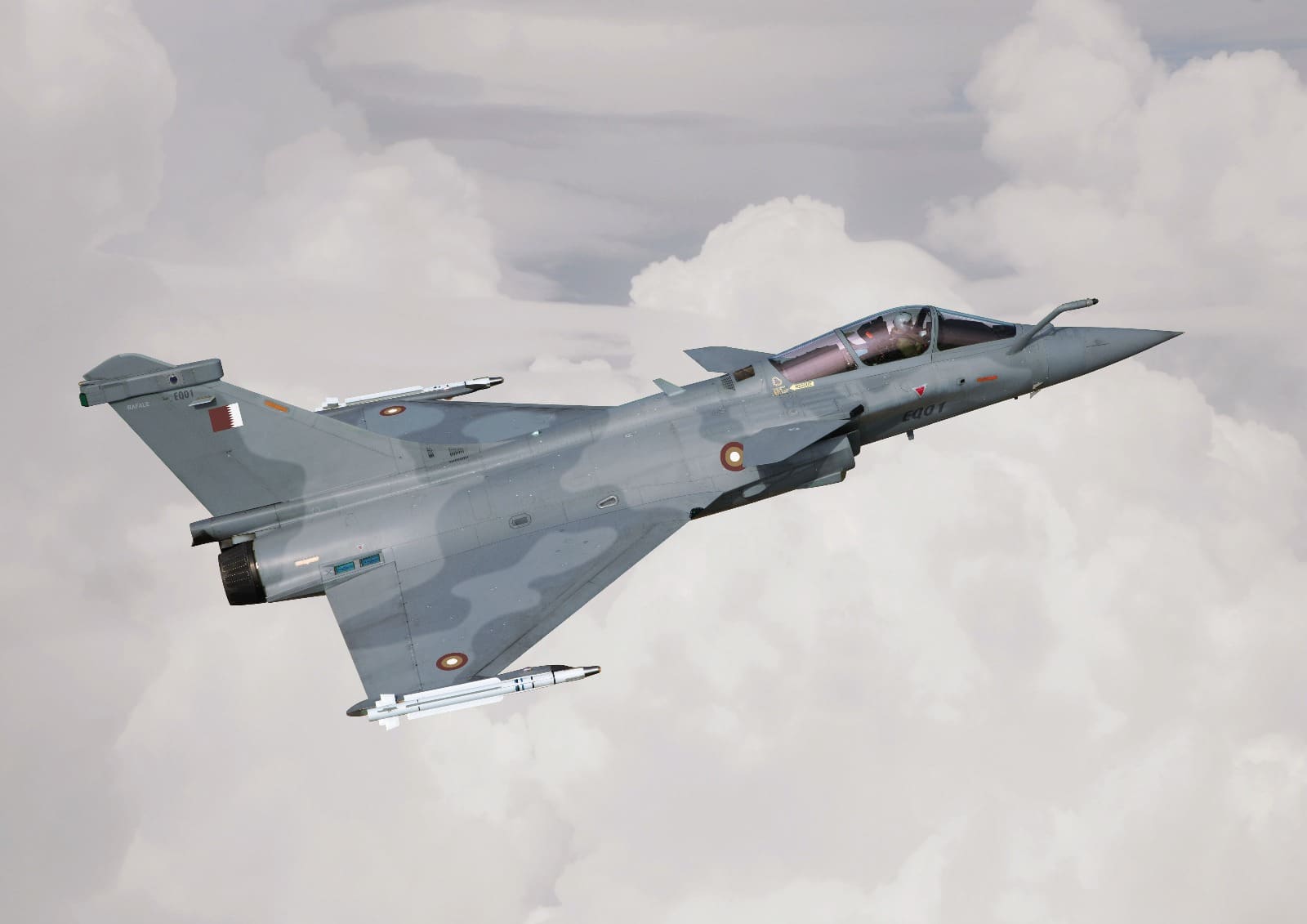Royal Air Force Warplanes and the Royal Navy will assist Qatar in protecting its airspace during the 2022 FIFA World Cup, the British Ministry of Defence (MoD) announced.
Joint Typhoon Squadron, also known as 12 Squadron, stationed at RAF Coningsby and operated by RAF (Royal Air Force) and QEAF (Qatar Emirate Air Force) personnel, would be tasked with protecting the Qatari skies throughout the event.
Air security activities will be used to support counter-terrorism efforts. 12 Squadron has routinely exercised in Qatar since its formation as a joint squadron in June 2020, and the World Cup deployment coincides with a pre-planned exercise, said the UK’s defense ministry in a statement.
Defence Secretary Ben Wallace said: “Making sure citizens from across the world can enjoy attending the World Cup, Britain and Qatar will join forces to provide air policing in the skies above the tournament.
Ukraine’s ‘Heart Wrenching’ Campaign To Support Its Dwindling Army In War Against Russia Gets Massive Support
“I am delighted that our joint squadron with the Qatari Emiri Air Force of Typhoons will patrol the airspace during the tournament.” The announcement follows Qatar’s Emir Sheikh Tamim Al Thani’s visit to Britain last week, during which he met Prime Minister Boris Johnson.
The cooperation will also involve advanced venue search training, operations planning, command and control support, and further specialist consultation. The 2022 World Cup is set to take place from November 21 to December 18.

Joint Squadrons
The two countries have strong defense ties. Qatar is the only partner with whom the RAF operates joint squadrons: 11 Squadron Qatari Emiri Air Force, the Joint Hawk Training Squadron at RAF Leeming, and 12 Squadron, the Joint Typhoon Squadron at RAF Coningsby.

These collaborations aim to enhance the number of flying hours available to RAF personnel, provide the Qatari Emiri Air Force with RAF-accredited training, and see long-term investment in RAF infrastructure and training facilities, said the UK defense ministry.
The QEAF signed a contract with BAE Systems for 24 Eurofighter Typhoon fighters and 9 Hawk trainers. They cost roughly £6 billion (USD 7.585 million) when combined with their bespoke support and training package and the armament contract with the MBDA company.
The Mighty Qatar Air Force
The majority of missions will be carried out by the Qatari Emiri Air Force, which is in charge of managing air security for the World Cup. The United Kingdom’s participation will be centered on offering expertise and capabilities gained in part from the Olympic experience hosted in the United Kingdom in 2012.
Qatar’s air force is in the process of becoming the ‘most diverse’ air force in the world. Qatar is currently acquiring the Eurofighter Typhoon fighter jet, making it the only air force to operate the deadly trio of F-15, Rafale, and the Eurofighter Typhoon.
The acquisition of Rafale and Typhoon is part of QEAF’s modernization drive, which began in 2010. Qatar decided to divide its aircraft purchases into three ways to procure Dassault Rafale, Boeing F-15 Advanced Eagle, and Eurofighter Typhoon.
The QEAF could eventually have 36 Rafales, 36 (or perhaps 48) F-15QAs, and 24 Typhoons.
It would not be surprising to see QEAF’s Rafale fighter jets or F-15s policing the skies alongside the Typhoon during the world cup. Last year, France also confirmed that it would be monitoring Qatar’s airspace during the long-awaited event.

Qatar and France agreed that the European country’s armed forces would deploy soldiers and equipment to the Gulf state. This includes the installation of a BASSALT anti-drone system, which will aid in the detection and identification of incoming drones.
It was first used to protect major international events in France in 2019 and was temporarily tested in Mali as part of Operation Barkhane. Furthermore, one of the French Air Force’s four E-3F Airborne Warning and Control System (AWACS) aircraft will also be used.
The E-3F Sentry, based on the Boeing 707-320 airliner, employs an AN/APY-2 passive electronically scanned array radar system designed to track over 600 targets over a 400-kilometer range (250 miles).
This interim support falls under the purview of the two countries’ “in-depth cooperation.” The purchase of 36 Rafale jets and 28 NH-90 helicopters (16 of which will be assembled in France by Airbus Helicopters) were two significant contracts signed between the two countries.
- Contact the author at ashishmichel@gmail.com
- Follow EurAsian Times on Google News




